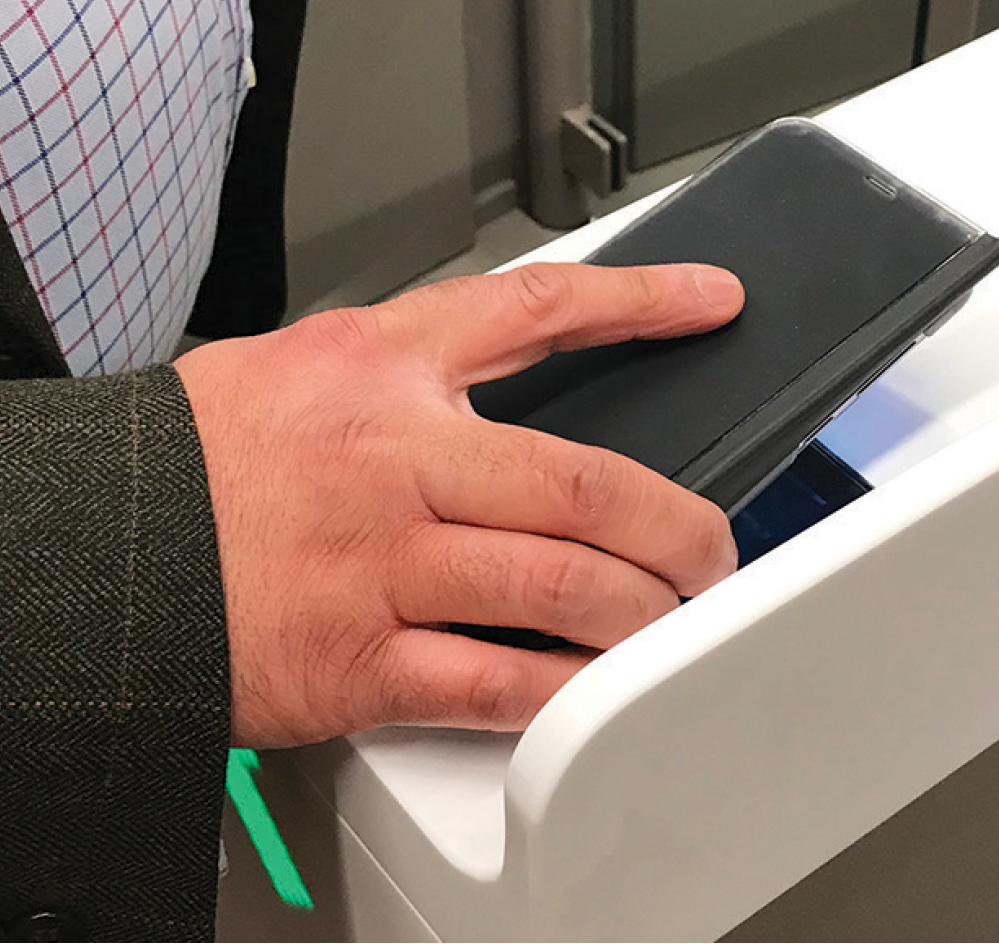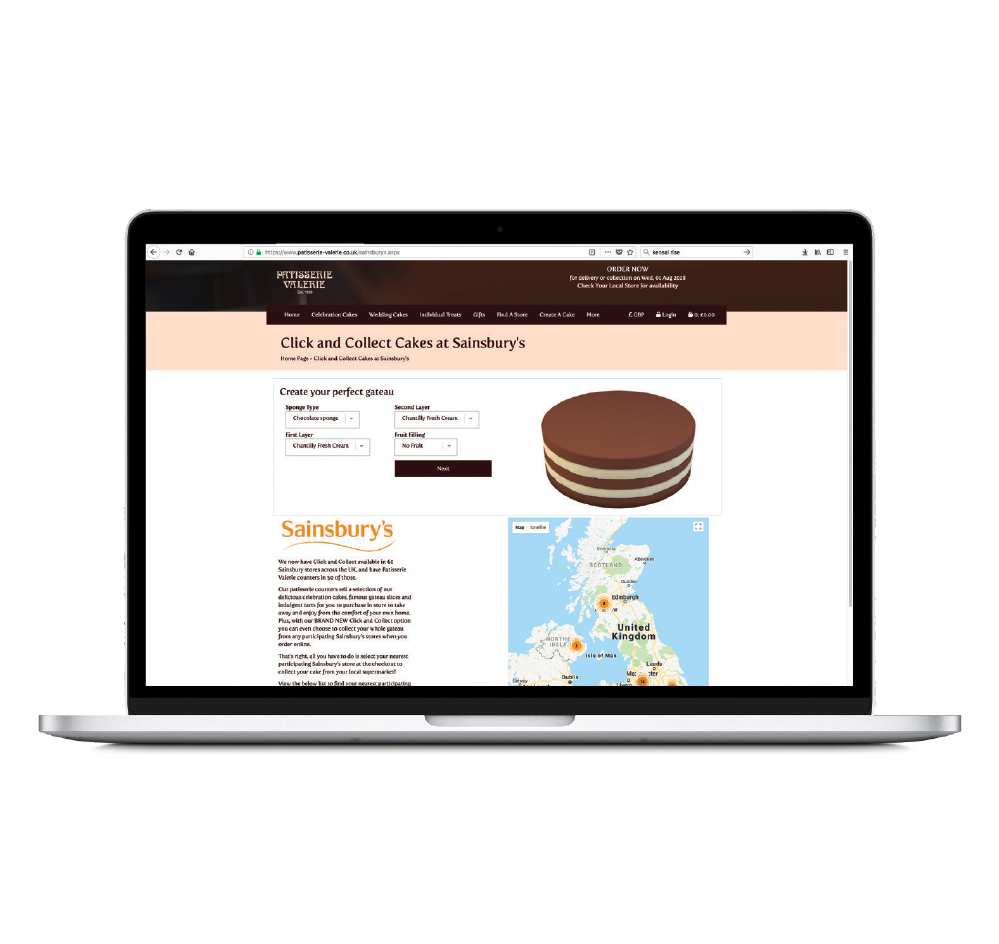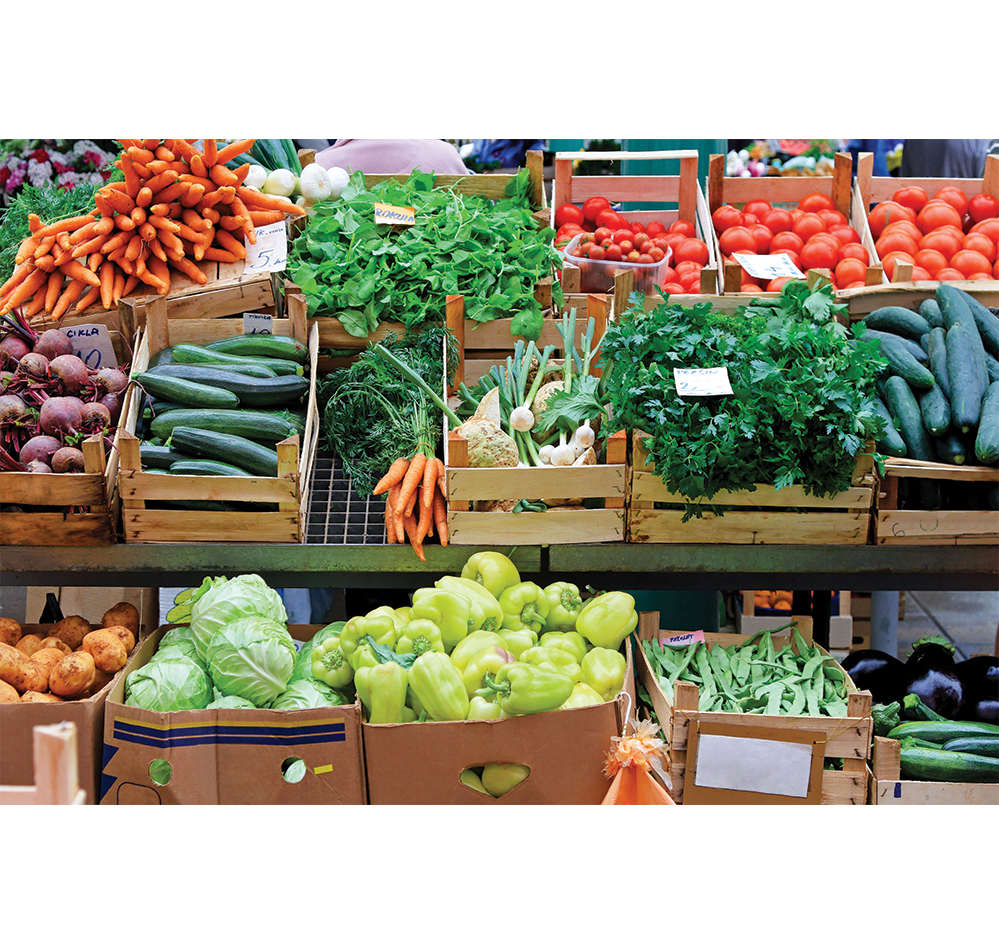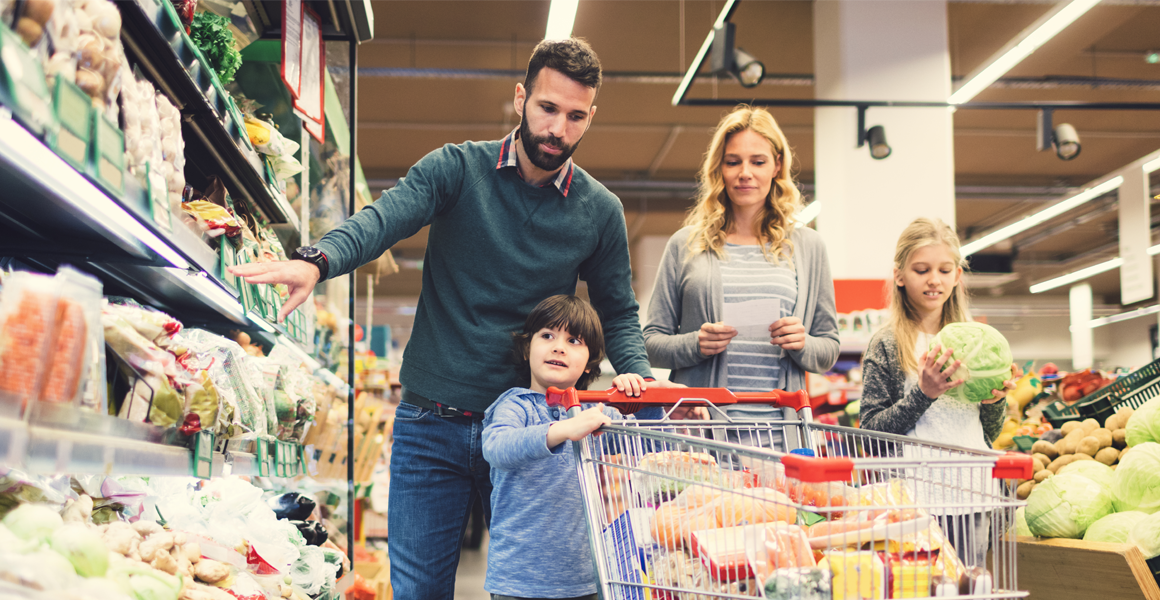Meat alternatives, till-less shopping, plastic reduction. The supermarkets have taken steps to modernise their offerings. Could their innovation spark ideas for your store? Tom Gockelen-Kozlowski investigates
In towns and cities across the UK, supermarkets are working on their next big ideas and trialling new technology, ranges or ways of working which will either boost their sales or crash and burn.
With the arrival of international online competitors such as Amazon, the speed of this innovation has increased. Better customer service, more convenient stores, healthier ranges – if there is a trend or customer demand out there, the supermarkets are trying to meet it.
Yet, in such a fast-changing market, surely the real losers will be smaller businesses which have limited or no access to the technology and insight driving these developments?
Perhaps not. Independent retailers’ hands-on experience provides a unique perspective on the trade. Delve into the most striking new ideas and there is often a simple core concept that smaller businesses have been aware of for generations.
Take deliveries – stores big and small have been spooked by the rise of Uber Eats, Deliveroo and the manifold other food delivery services to emerge in recent years.
While some retailers, such as One Stop’s Sunder Sandher, have been getting involved by working with these companies directly (and eulogising about doing so at events such as the Local Shop Summit), others are going back to basics.
Jaina Patel recently took on her own business having grown up in a family steeped in retail. Her Booths Convenience Go Local came with an established HND round of 400 and – seeing how home delivery was changing retail and food service in her native town of Luton – she decided to use this existing network to transform her business.
“We’ve already started leafleting our HND customers and are using this service to deliver eggs, milk and bread,” she says.
With 600 new homes being built in her village, Jaina expects this service to grow exponentially.
It’s a great example of how retailers can utilise their skills to beat the supermarkets at their own game and how, in many cases, they’re already doing it.
So, this week, RN has taken a look at innovations being trialled in UK supermarkets and searched for a way that independent business are already doing (or could do) the same or similar things in-store today.
Are you ready to beat the supermarkets at their own game?
The supermarkets’ idea
Shopfloor specialists and ambassadors

in specialist staff to
improve customer service
At the premium end of the market, engaging customer service is becoming central to supermarkets’ point of difference. Waitrose is introducing shopfloor “food ambassadors” to provide customers with further information about products, how to use them and give its stores a general higher standard of customer service. The idea comes after the supermarket announced 11 new in-store “healthy eating specialists” operating in its business, with the number rising to 100 by the end of the year. Moira Howie, nutrition and health manager at Waitrose, says: “Many shoppers have the best of intentions to be healthier, but busy lives get in the way. We know that small steps, top tips and nuggets of advice can help customers get started and, importantly, stay on track.”
What indies are doing
The focus on in-store service highlights the fact that many supermarkets know pretty soon they will not be able to compete on price or convenience. Small-sized independent stores with long-standing links to the community and located in places perfect for last-minute top-up shops are far better placed. But there is opportunity to improve your offer by educating your staff on given categories. Suppliers from every category are increasingly offering independents training to help turn staff into experts to help upsell their products.
Verdict: independents win
Supermarkets are investing in their staff’s expertise long after independents and their suppliers have begun this process.
Small steps, top tips and nuggets of advice can help customers get started, and stay
on track
The supermarkets’ idea
Trailblaze for meat alternatives

to stock next-generation
meat alternatives
No sooner had the buzz about bleeding vegan burgers in California begun than Sainsbury’s announced the imminent arrival of the Beyond Meat range in its own stores. There are an estimated 22 million so-called flexitarians in the UK, meaning the market for these products extends well beyond the limits of the vegan community. Indeed, such is the promise of these new high-tech meat-style products that backers include Microsoft’s Bill Gates. The range arrives in stores later this month.
What indies are doing
Symbol bosses from across the market are now discussing the importance of catering for meat-free lifestyles, and stores are noticing the trend, too. Chris Athanasiou, of Tony’s Continental in East Finchley, told RN earlier in the year that vegan produce makes up 20% of his weekly sales. “We have handwritten displays and we stock the category near gluten-free or world foods because they go well together. Sales used to be in single figures and the appeal for non-vegans is growing,” he said.
Verdict: multiples win
Independents will always be able to adapt their ranges faster, but next-generation meat alternatives will be stocked in the supermarkets first.
The supermarkets’ idea
Shopping without the till

shopping at its Welwyn
Garden City headquarters
Following the arrival of Amazon Go in the US, Tesco is trialling a similar system in a store within the supermarket’s headquarters in Welwyn Garden City. Both systems rely on customers downloading apps which are then used as self-scanners, replacing the need for tills. At Amazon’s Amazon Go store, there is a considerable array of cameras used to record purchases and cut theft. Steve O’Neill, group marketing director at PayPoint, described Amazon’s version as a “really slick concept”, while Nisa retailer Harris Aslam commended it as the “finest example of technology disrupting convenience”. With Tesco’s budget and its near-Amazon-sized level of ambition, anything the company brings out to its wider estate will likely be just as cutting edge.
What indies are doing
Waitrose, too, can stake a claim for innovation thanks to its Quick Check self-scan service. Yet, it is hard to see independents being able to afford the hi-tech cameras and apps that allow stores such as Amazon Go to function. However, Steve O’Neill says the important lesson from any of these innovations is to focus on the ways they can free-up staff and store owners to improve the overall customer experience. “It’s about how technology works with people to create a better experience for people,” he said. New systems are being developed to facilitate this. Henderson Technology, for example, has based the EPoS system it is currently rolling out on retailer feedback requesting help to manage peak times, enhance customer experience, reduce wait times and manage overstaffing.
Verdict: draw
Major chains start at such a disadvantage when it comes to customer service that freeing staff up to focus on this will merely help them catch up.
The supermarkets’ idea
Create a discount brand

indies to rival discounters
and offer great value
In an apparent tribute to Tesco founder Jack Cohen, the supermarket’s new planned rival to Aldi and Lidl is named Jack’s and will soon have 60 stores across the UK, according to the Independent. There has been talk of a multiple-launched discounter for as long as discounters have operated, yet Sainsbury’s short-lived venture to bring back Danish firm Netto to the UK highlights how difficult this has proved. However, the two German discounters’ continued success means this is an endeavour the larger groups will continue with, if they deem it the best way to claw back market share.
What indies are doing
The rise of the discounters has not gone unnoticed by independents or their suppliers – how many big-brand confectionery sharing bags have stuck rigidly to £1 pricemarks, no matter how small the product becomes? But store formats such as Family Shopper and discount ranges available more widely from wholesalers, have allowed independents to get in on the act, and independents benefit from the fact a big shop at a discounter is wholly different to a top-up shop at a local store. Sunita Kanji – who runs a Family Shopper in Bolton – has transformed her store into a discounter-style business with brands and products dictated by price alone.
Verdict: draw
Since the financial collapse of 2008, pound zones have become ubiquitous in UK convenience stores. The sometimes surprising mixture of items these ranges contain have only helped drive repeat visits and aided convenience stores’ position as a local destination to find everything a customer needs.
The supermarkets’ idea
Introduce big-name concessions

customise cakes online or buy from
Patisserie Valerie concessions in-store
Sainsbury’s is adding an extra touch of class to its bakery ranges with Patisserie Valerie concessions in 50 stores. The Sainsbury’s website allows customers to create their own gateau and also offers a number of the premium café’s wedding and celebration cakes, individual treats and gift cards and vouchers. The move comes as Sainsbury’s has also been trialling – with the help of Unilever – a series of Ben & Jerry’s ice cream counters. The arrival of these concessions comes just months after Spar boss Debbie Robinson told RN that bringing brands in-store – rather than consolidation – remained at the heart of her strategy for success in convenience.
What indies are doing
Spar’s relationship with Subway, among others, highlights that retailers have many ways to engage with major brands. How many independents retailers also have a Costa Coffee machine? Where independents are going one step further than the supermarkets, however, is by working with other local businesses – particularly restaurants – to turn their businesses into community hubs. Paul Gardner’s Budgens in Islington, Mital Morar’s Ancoats General Stores in Manchester and the latest Eat17 store in Bishop’s Stortford are all great examples of this, as are the hundreds of independents who have, for years, teamed up with local florists, butchers, dry cleaners, manufacturers, farmers and more to support each other and offer customers a local network of products and services.
Read similar: Convenience takes bigger bite of food-to-go market
Verdict: independents win
Supermarkets are merely becoming brave enough to do something that independent retailers have known is a good idea for decades.
The supermarkets’ idea
Reduce plastic usage in-store

from local suppliers can
cut packaging use
Iceland has been stealing the headlines for its plastic reduction strategy and its eye-catching commitment to be plastic-free on its own brand packaging by 2023. Most recently, the supermarket has extended its London trial out to stores across the UK. The company’s managing director, Richard Walker, says: “Through our trials, we hope to understand how to make it easier for people to act in an environmentally-conscious way while tackling the threat of the millions of plastic bottles that go unrecycled every day.” Iceland’s own research shows that 80% support the move and 68% believe other supermarkets should follow suit.
What indies are doing
Stores are working to cut their use of plastics, particularly on fruit and vegetables. The businesses which are a step ahead of the rest are those – like Linda and Dennis Williams’ Premier Broadway in Oxgangs, Edinburgh – which source much of their fruit and vegetables from a local independent wholesaler. More widely, convenience stores will likely rely on the efforts of suppliers to reduce the environmental impact of their products.
Verdict: multiples win
This is one example of where size matters, but Iceland’s lesson to independents is this: if you’ve got news on the environmental impact of your business, it pays to shout about it.



Comments
This article doesn't have any comments yet, be the first!